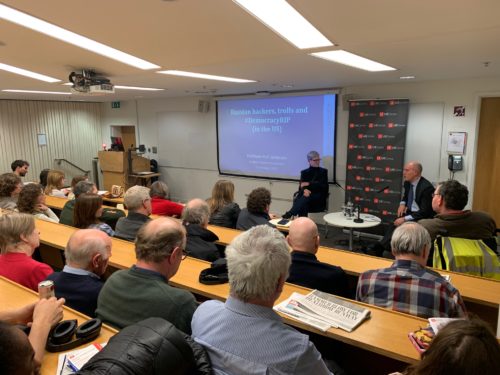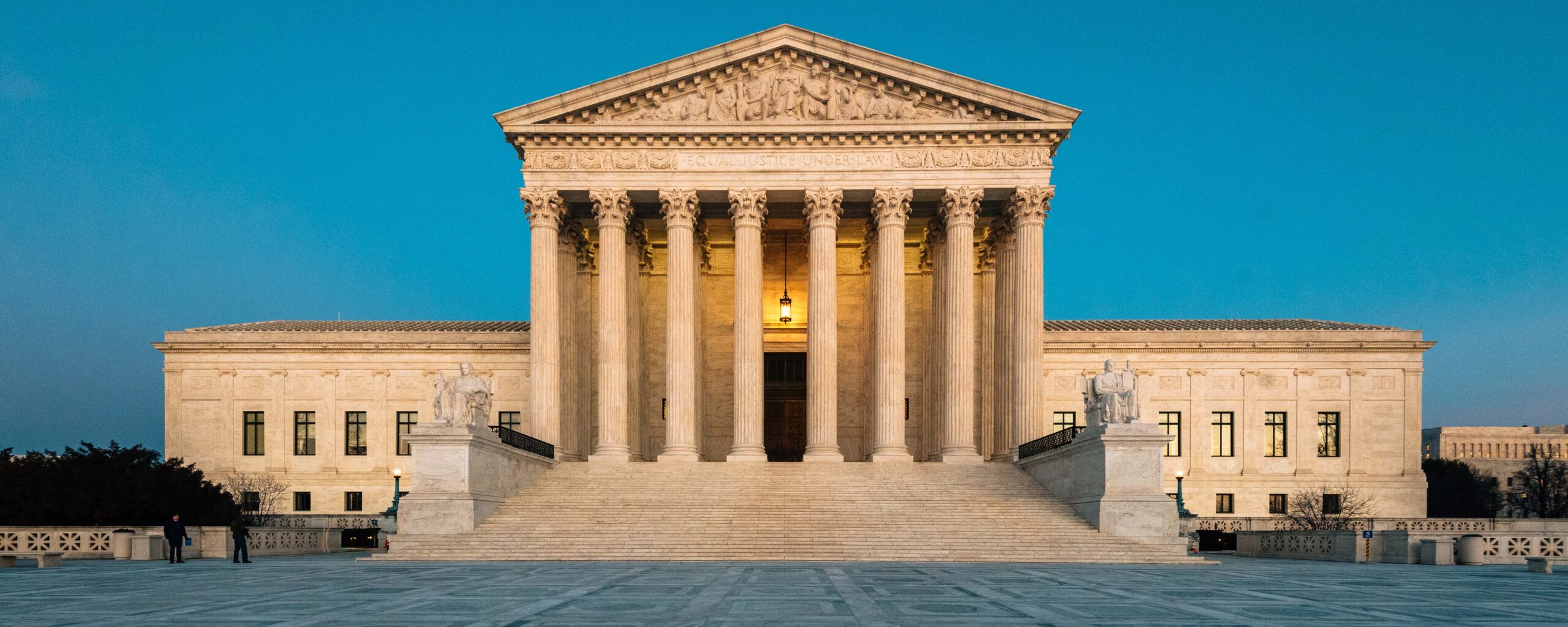
Annenberg Public Policy Center Director Kathleen Hall Jamieson visited the London School of Economics’ United States Centre last week to talk about the scope of influence Russian trolls and hackers had on the U.S. media and voters during the 2016 presidential election. In her February 27, 2020, talk, “Russian hackers, trolls, and #DemocracyRIP,” Jamieson presented her argument that, although not certain, it is probable that Russia’s covert online presence and the activities of Russian operatives helped elect Donald Trump to the presidency.
Though Hillary Clinton won the popular vote by two points, Donald Trump became president by winning the electoral college. In all, just 78,000 votes in three swing states – less than 0.05% of the total votes cast – were responsible for deciding the election. Given the tight margin of victory, Jamieson believes that online Russian influence may well have had enough of an impact to turn voters away from Clinton and/or toward Trump. Additionally, she points out that the 2016 American electorate was very susceptible to Russian influence, thanks to a high level of dissatisfaction with both candidates and high numbers of undecided voters, particularly in those key swing states.
Jamieson argues that the Russian trolls and hackers most likely influenced the 2016 election in three ways: by mobilizing and demobilizing key segments of voters through social media accounts; releasing hacked content (thereby influencing media narratives); and propagating disinformation, particularly in the final few days of the campaign.
Jamieson is the author of the award-winning book “Cyberwar: How Russian Hackers and Trolls Helped Elect a President,” published in 2018 by Oxford University Press. “Cyberwar” will be published in an updated, paperback edition in the late spring.

